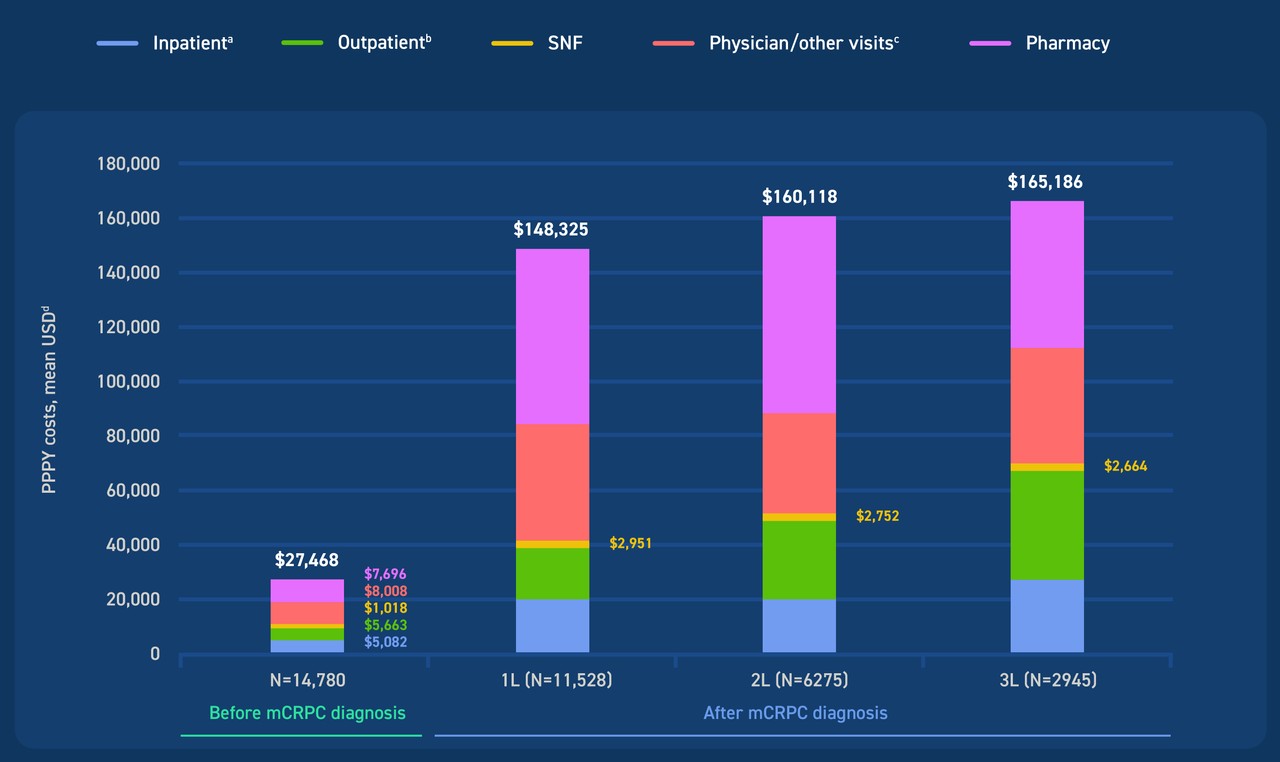Case Study
Exploring treatment
patterns, healthcare resource utilization
and racial disparities
using 100% Medicare data.
The Questions
Metastatic castration-resistant prostate cancer (mCRPC) is characterized by aggressive growth and resistance to standard hormone therapy, posing significant challenges for management and prognosis.
Previous real-world studies on treatment patterns, healthcare resource utilization (HRU), and racial disparities among patients with mCRPC are limited by factors such as longer-term data availability, lack of evidence across lines of therapy, and missing or incomplete data on variables such as race and ethnicity.
We wanted to know if 100% Medicare data could be used to overcome some of these common challenges associated with real-world studies to provide comprehensive evidence on treatment patterns, HRU, and survival in a Medicare population of patients with mCRPC and identify areas of unmet need.
The Approach
Treatment Patterns and HRU
A claims-based algorithm was applied to 100% Medicare data to assess duration and frequency of lines of therapy. Patterns of treatment sequencing and survival were characterized over several years following initiation. Annualized HRU and costs were calculated across lines of therapy and for untreated patients.
Racial Disparities
The patient population of interest was identified in 100% Medicare data, which includes race, ethnicity, and mortality. Differences in treatment frequency and type, as well as survival, were compared by race and ethnicity.
The Results
Treatment Patterns
Key Finding
Most patients do not receive recommended therapy or receive only one line of treatment.

Unmet Need
Survival is poor but could potentially be improved with optimized treatment sequencing and use of novel therapies earlier in the disease continuum.

HRU
Key finding
Resource use and costs increase substantially from before to after diagnosis and with progression to each line of therapy; untreated patients have high rates of inpatient admission.
Unmet Need
Novel treatments that prevent or delay disease progression could relieve substantial economic burden to the healthcare system.

Racial Disparities
Key finding
Rates of any treatment and the types of treatment used differed across race and ethnicity groupings.
Unmet Need
Further research is needed on drivers of disparities in treatment and survival by race and ethnicity.
The Long And
Short Of it
Medicus researchers were able to generate novel evidence in a population of patients with mCRPC using 100% Medicare data.
Such analyses could be applied to other disease areas to generate real-world evidence that can inform HEOR and market access efforts for Medicus clients.